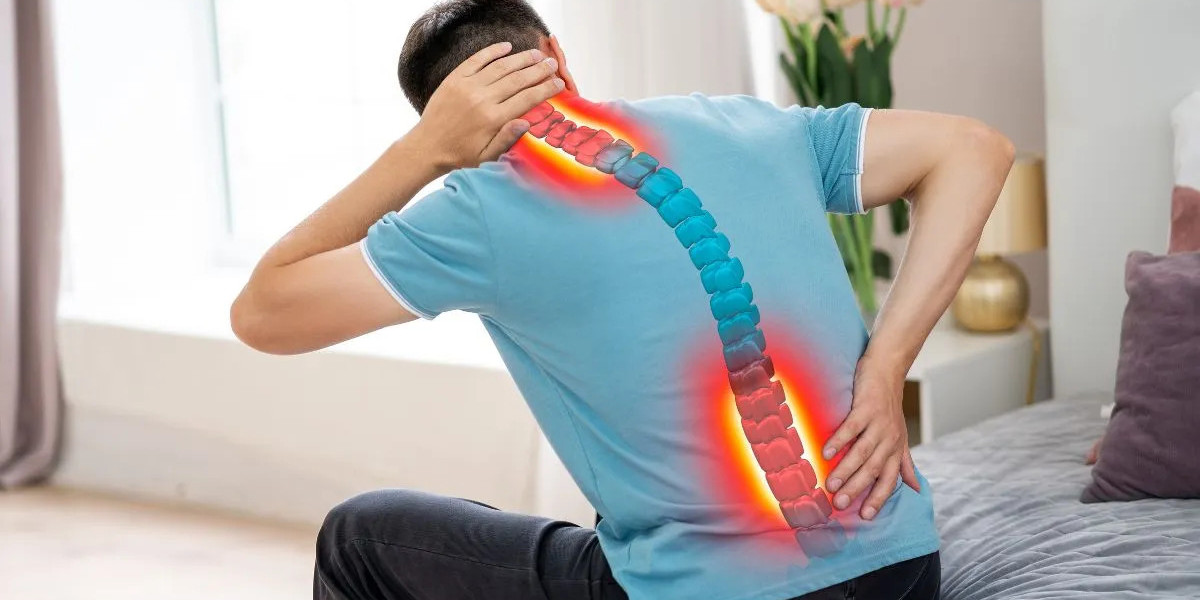Chronic pain and sleep apnea are two conditions that affect millions of people worldwide. Although they may seem unrelated at first glance, a growing body of research suggests an important connection between the two. People with chronic pain often have disturbed sleep, and those with sleep apnea often report increased sensitivity to pain. So what is the connection between sleep apnea and chronic pain, and how can understanding it help improve treatment and quality of life?
What is sleep apnea?
Sleep apnea is a common sleep disorder characterized by intermittent pauses in breathing during sleep. These pauses, called apneas, can last from a few seconds to a minute or more and can occur several times during the night. The most common form of sleep apnea is obstructive sleep apnea (OSA), which occurs when the throat muscles relax too much during sleep, blocking the airway. Another form is central sleep apnea, which is caused by the brain's inability to send signals to the muscles that control breathing.
What is chronic pain?
Chronic pain is defined as pain that persists for three months or more, often due to an underlying condition or injury. Unlike acute pain, which serves as a warning signal that something is wrong, chronic pain can become a condition in its own right, affecting both physical and emotional health. Common conditions associated with chronic pain include arthritis, fibromyalgia, back pain, migraines, and neuropathic pain.
Chronic pain can have a significant impact on a person’s ability to function in daily life, often leading to difficulties with work, social activities, and overall well-being. It can also cause sleep disturbances, which can create a vicious cycle of worsening pain and sleep disturbances.
The Link Between Sleep Apnea and Chronic Pain
The connection between sleep apnea and chronic pain is multifaceted. Several factors contribute to the overlap between these two conditions, and understanding this relationship is essential for effective management.
1. Sleep disorders worsen pain sensitivity
People with sleep apnea often experience fragmented sleep due to frequent awakenings caused by interruptions in breathing. This concern can lead to a state of sleep deprivation, which has been shown to decrease pain tolerance and increase pain sensitivity. Studies suggest that inadequate or poor-quality sleep can lower the threshold for pain perception, making chronic pain more difficult to manage.
2. Inflammation as a Common Factor
Sleep apnea and chronic pain are both linked to inflammation in the body. Sleep apnea can trigger an inflammatory response due to the constant lack of oxygen, which leads to higher levels of pro-inflammatory markers. Similarly, chronic pain, especially in conditions such as arthritis or fibromyalgia, often involves inflammation of the affected tissues.
Inflammation not only plays a role in the development of chronic pain, but it can also worsen sleep apnea by increasing muscle stiffness or contributing to airway obstruction during sleep. Therefore, the two conditions may reinforce each other through the common pathway of inflammation.
3. Impact on the Nervous System
Sleep apnea and chronic pain both significantly impact the nervous system. In sleep apnea, the persistent drop in oxygen levels caused by apnea can lead to activation of the sympathetic nervous system, which is the body's "fight or flight" response. This activation increases heart rate and blood pressure, and can also increase the perception of pain.
Chronic pain, on the other hand, often results in central sensitization, a phenomenon in which the nervous system becomes. more sensitive to pain signals over time. Chronic activation of the nervous system due to sleep apnea, on the other hand, can increase sensitivity to pain, leading to a vicious cycle of worsening both conditions.
4. Fatigue and Reduced Mobility
Chronic pain often causes fatigue and can limit mobility, leading to a more sedentary lifestyle. This lack of physical activity can degrade sleep quality, as movement and exercise are essential for promoting deep, restorative sleep. At the same time, poor sleep due to sleep apnea can lead to increased fatigue, making it even more difficult for people with chronic pain to engage in physical activity, further aggravating both conditions.
How can treating one condition help the other?
Given the interdependence of sleep apnea and chronic pain, it is often necessary to treat both conditions simultaneously for effective management. Here are some ways that treating sleep apnea can help relieve chronic pain and vice versa:
1. CPAP therapy for sleep apnea
For people with obstructive sleep apnea, using a continuous positive airway pressure machine Continuous positive airway pressure (CPAP) during sleep can help keep the airways open, allowing for better quality sleep. As sleep improves, sensitivity to pain may decrease and chronic pain symptoms may become more manageable. CPAP therapy can also reduce inflammation in the body, which can potentially ease some pain symptoms over time.
2. Pain Management
Treatment of chronic pain with medication, physical therapy, or other interventions can help improve sleep by reducing anxiety that disrupts sleep. When pain is under control, people are more likely to get restful sleep, which, in turn, can help reduce the perception of pain and improve overall quality of life.
3. Lifestyle changes
Lifestyle changes such as regular exercise, weight management, and stress reduction can improve sleep and pain management. Exercise has been shown to improve sleep quality and help manage chronic pain by releasing endorphins, the body's natural painkillers.
You can Buy Modalert 200 and Artvigil 150mg to treat sleep apnea at Medzsquare at a reasonable price. This is the most important and safest place to buy generic medicines like Modvigil and Modalert 200 online.
Conclusions
The relationship between sleep apnea and chronic pain is complex, but the link between poor sleep quality and increased sensitivity to pain is clear. Treating both conditions is essential to improving quality of life. If you suffer from chronic pain and think you may have sleep apnea (or vice versa), it is essential to seek advice from a healthcare professional who can provide you with a comprehensive treatment plan tailored to your needs.
Treating sleep apnea and chronic pain together, rather than in isolation, offers the best chance of improving both conditions. A comprehensive approach that includes sleep management, pain relief, and lifestyle changes can help break the cycle of pain and sleep disorders, leading to better outcomes for those struggling with both conditions.
Visit : Medzsquare.com







